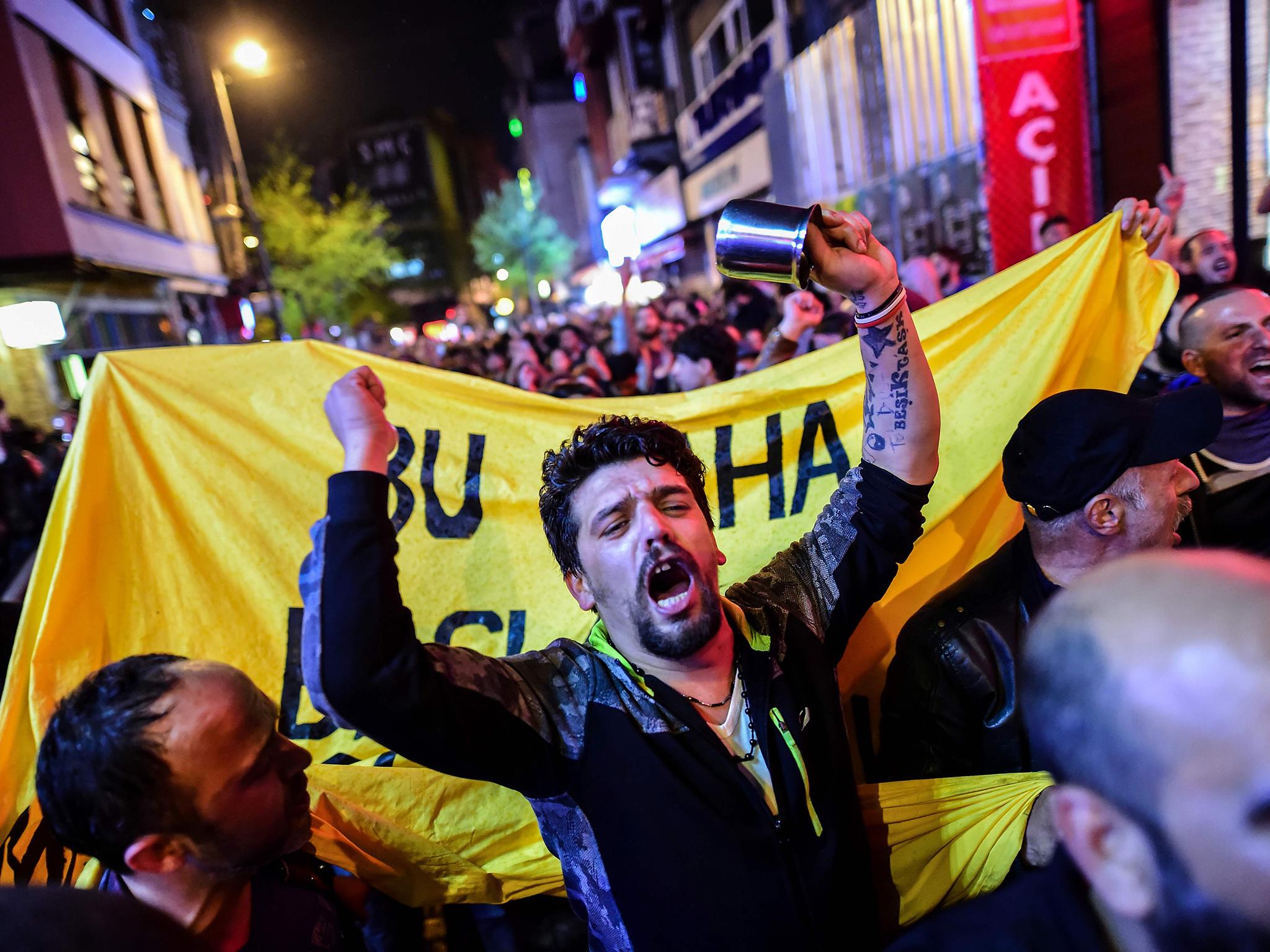Turkey’s No campaign is not going to take its defeat lying down
This is the first time in my memory that an opposition party has refused to concede a Turkish election result

Support truly
independent journalism
Our mission is to deliver unbiased, fact-based reporting that holds power to account and exposes the truth.
Whether $5 or $50, every contribution counts.
Support us to deliver journalism without an agenda.

Louise Thomas
Editor
Yesterday was the day Turkey shed away the few remaining checks and balances that made it a recognisably Western parliamentary democracy.
By November 2019, the post of prime minister will be abolished and its responsibilities transferred to the president. The holder will have vast powers: to select his party’s MPs, to appoint senior judges, and to rule by decree.
It will be much harder to keep that single office in check. Previously, MPs in parliament could vote to come together to investigate and topple any minister they suspected of wrongdoing. The process took no longer than 18 days.
That same process will take longer for the president under the new system – up to 10 months – and the number of MPs who need to vote for it has increased dramatically.
It’s little wonder that Recep Tayyip Erdoğan’s governing AK Party described it as a “Turkish-style” presidential system. There isn’t anything like it in the west.
People in Turkey endorsed this new regime in Sunday’s referendum and yet the winning margin – 51.3 per cent – was remarkably narrow.
That was surprising, given the Yes side had a vastly superior campaigning advantage. The sides of public buildings sported gigantic Yes posters, embassies overseas staged rallies and the governing AK Party received countless more hours in coverage than the opposition did.
In alliance with far-right parties, the Yes camp played to the pious, conservative bulk of the electorate with a fiercely nationalist campaign. “One nation, one flag, one country, one state” was the slogan. You would be forgiven for forgetting Turkey is also home to millions of Kurds.
The No campaign received far less exposure. It was covered less on television; its banners were ripped from walls and many activists were arrested.
Erdoğan even implied No voters were consorting with terrorists because that was the outcome supported by Kurdish militants and Fethullah Gülen, the Muslim cleric blamed for last year’s military coup attempt.
And yet No won four of Turkey’s five biggest cities. It was the first time in a quarter century that Erdoğan’s side lost Istanbul, the city where he was once mayor.
It came despite claims of government collusion in vote rigging.
The allegations are based on a single stamp – the seal of the polling station presiding officer – on the back of every ballot paper and every envelope it is placed in. The law says this mark must be applied before a voter is handed their ballot paper.
But Turkey’s election body, the YSK, announced just as voting closed that any ballot papers not carrying this official seal will still be considered valid.
This is not a quibble on procedure. Without that polling station mark, it is perfectly possible for anyone to print a round of ballot papers at home, stamp Yes or No on each, and distribute them to people with the instruction: “Put this in your envelope and bring me back the blank ballot they give you.”
Scores of easily impressionable voters could have found their choice being made for them.
To be clear, there is no firm evidence of vote rigging – yet. International observers will announce their preliminary verdict later on Monday, but it is Turkey’s opposition that will determine the tone of the coming days.
“I am sorry to say that the YSK has brought this referendum result into contention,” No campaign leader Kemal Kılıçdaroğlu said on Sunday night. “You cannot change the rules of a match while the match is being played.”
What happens next is anyone’s guess. This is the first time in my memory that an opposition party has refused to concede a Turkish election result. They will certainly file objections to results. There’s also talk of a civil disobedience campaign.
The rules governing the country fundamentally changed on Sunday. The question now is whether Turkey’s vast, disaffected minority will accept it.
Michael Daventry is the editor of Haber, a Turkish community newspaper in London.
.
Join our commenting forum
Join thought-provoking conversations, follow other Independent readers and see their replies
Comments